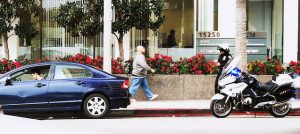 Most drivers would like to believe they drive responsibly; amazed when they’re stopped by a law enforcement officer. You offer up every explanation for the mishap including you’re late for soccer practice or you’re running late for work. Unfortunate, the officer has a job to do, and you’ve been accused of violating the traffic laws, signs, or obstructing the flow of traffic, says the officer. He decides not to let you go with a warning and decides to write you a ticket for impeding traffic. You’ve been told you can pay the ticket or dispute it in court by a specific date from the officer.
Most drivers would like to believe they drive responsibly; amazed when they’re stopped by a law enforcement officer. You offer up every explanation for the mishap including you’re late for soccer practice or you’re running late for work. Unfortunate, the officer has a job to do, and you’ve been accused of violating the traffic laws, signs, or obstructing the flow of traffic, says the officer. He decides not to let you go with a warning and decides to write you a ticket for impeding traffic. You’ve been told you can pay the ticket or dispute it in court by a specific date from the officer.
What Is An Impeding Ticket
In California, the law covers multiple types of impeding traffic violations. You can receive a ticket for impeding that is a moving violation or that isn’t a moving violation. If upheld, the moving violation incurs a point (1). You’ll find that impeding bears similarity to driving too slow in left lane traffic, but an officer can charge you with impeding traffic even if you’re in the only lane of a single lane road or in the curb lane. You simply operated your vehicle so slowly that it blocked or slowed other traffic from moving at normal speed (the posted speed limit). Some people successfully have this ticket type overturned by proving:
- Conditions required speed reduction for safety reasons (ex. heavy rains, fog, smoke from wildfire),
- The road’s grade (rough pavement) required it,
- You complied with another law in slowing.
You may also get a ticket if you operated your vehicle too slowly without moving to a turnout lane to allow other cars behind you to pass. If your vehicle traveling slower than the speed limit has five or more cars behind it, the law says to enter the turnout and let the faster moving traffic pass. Essentially, driving too slowly gets you in the same trouble as driving too fast. Don’t confuse the turnout law with improper passing (22348 c), which includes passing across multiple lanes.
Other common impeding violations of the vehicle code include:
- 22526 a – blocking the intersection or a marked crosswalk so that other cars dont have sufficient space to pass through the intersection;
- 22526 b – turning at an intersection against a yellow arrow or steady circular yellow without leaving sufficient space in the intersection or crosswalk for other vehicles;
- 22526 c – blocking passage of a railway vehicle on a railroad or rail transit crossing due to lack of “sufficient undercarriage clearance;”
- 22526 d – blocking passage of a railway vehicle on a railroad or rail transit crossing due to a lack of space to cross to the other side.
Potential Penalties
According to Traffic Violation Law Firms, in California a moving violation of impeding results in a ticket if not more than $100 and the addition of one point to the recipient’s license. The recipient may mask one offense every 18 months by successfully completing traffic school. A one point offense remains on the driver’s record for three years. If the driver’s license gets suspended, it can only be reinstated via an administrative hearing.
Your insurance may or may not increase because of an impeding ticket. According to Avvo, generally, if paid and no points appear on the license, the ticket won’t affect insurance costs.
Handling a Ticket
You have two options: pay the ticket or contest it. Some people find that paying the ticket and attending traffic school lets them avoid court. The jurisdiction may allow to pay via mail or online. For a moving violation that requires a court appearance, the court may offer a point reduction for a driver who successfully completes traffic school.
To contest a California traffic ticket, you may request trial by mail or attend a court date in the county of the ticket’s issuance. If you lose your ticket, phone your local traffic court. For a serious charge or if you work as a commercial driver, you may want to hire a traffic ticket attorney.
Accumulation of four points within 12 months or less, results in license suspension. A conviction of driving under the influence of alcohol or drugs results in automatic suspension of your license.
[Image:https://www.flickr.com/photos/chrisyarzab/27985449109/]
Scott Desind
Latest posts by Scott Desind (see all)
- How to Request the County Seat and Fight Your California Traffic Ticket - May 21, 2023
- Don’t Even Touch That Cell Phone - July 13, 2022
- Innocent Until Proven Guilty - March 2, 2020

